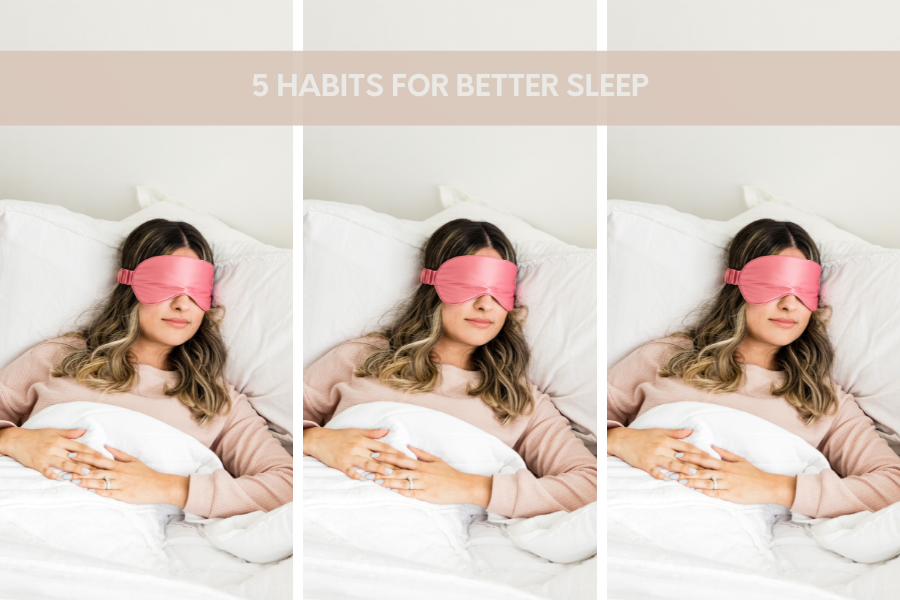Your Health And Your Waistline Depend On It

The health and weight loss implications of getting good quality sleep are massively underrated. Yet it’s something that so many people struggle with. A startling 62% of people report that they don’t sleep well according to the World Economic Forum.
Are you one of them? If so read on.
Sleep is an area that has been extensively researched over recent years and studies show that not getting enough z’s each night can be a causing factor of many health issues including heart disease, immune function, high blood pressure, kidney disease, depression, brain function, diabetes, and obesity.
“Devastating diseases such as Alzheimer’s, cancer, obesity, and diabetes all have links with deficient sleep,” says Matthew Walker Author of the best-selling book Why We Sleep.
Sleep is the time that your body rests and recovers. All the efforts that you put in during the day whether that is eating healthy foods, working out, learning and processing information, all of that is stored and utilized within the body when you sleep. If you aren’t getting enough sleep, your body cannot do this and your health can be compromised.
Sleep is also the reset button for your hormones too and hormones play a HUGE part in your hunger, cravings and motivation.
If you are sleep deprived, the body can have 20% more Ghrelin (this is your go hormone, and the one that tells you that you are hungry). The opposite of that is Leptin, (this is the hormone that tells you when you are full), and signals when to stop eating. Leptin is 15% lower in people who are sleep deprived. If you are not getting enough sleep you are fighting a losing battle if you are also trying to lose weight.
More I’m hungry signals, and fewer I’m full signals mean that sleep deprivation can be a driving factor in being able to manage your eating habits for health and weight loss.
This is why I include sleep as one of the key areas to look at improving when working with my clients.
How Much Sleep Do We Need?
The amount of sleep needed is as always a very individualized prescription, but a good starting point to start experimenting with is going to lie somewhere between 6–8 hours a night.
Some people can naturally do ok on less, some people may need more. It’s important for you to start to tune in with your body and consider how much you feel you need to wake up feeling rested in the morning.
Consider what type of person you are, do you know how many hours you generally feel good on?
Do you wake up feeling rested or are you constantly feeling tired throughout the week?
If you are someone that struggles with sleep, consider what is the cause of your sleep challenges?
Key sleep disruptors include things like:
- Stress and worry
- Where you fall asleep, your environment. Are you in a comfy bed, or are you falling asleep on the couch in front of the TV?
- Hectic daily life schedules, I think we all have one of these most days.
- Technology and media keep the brain switched on
- Disruptors — eating or drinking caffeine-containing foods and drinks before sleep can disrupt sleep patterns, and even sugar has been shown to impact sleep depth and quality.
So these are the things that can prevent good quality sleep, so what can we do about it, and what are the things that support good quality sleep.
5 Habits To Support Good Sleep
Here are 5 very simple steps that should be the starting point to help you to improve your sleep.
- Diet — Eating a balanced diet of whole foods is not only better for your body and your waistline but it can help aid better sleep. Reducing the amount of sugar and indeed glucose in your body can lead to better quality sleep according to studies
- Routine — I love a routine and when it comes to sleep, your body benefits from having regular sleep and wake times. With our busy lives I know that’s not always possible, but as much as you can do try and go to bed and get up at the same time each day as your body will feel better from tuning into your natural circadian rhythm (your natural wake and sleep cycles). Light also helps that rhythm so getting out in natural light in the day times and avoiding artificial light at nighttime. Meaning of course reducing screen times in the evening, I know it’s not just me that struggles with that one.
- Exercise — Exercise will help you to balance melatonin and cortisol levels throughout the day. Find a time that works for you but make the commitment to moving daily, even if it’s just going out for a walk.
- Magnesium — One of the best for supporting good and deep sleep. Magnesium can give you weird and crazy dreams, but I kind of enjoy that. Magnesium helps to maintain normal nerve and muscle function, supports a healthy immune system, keeps the heartbeat steady, and helps bones remain strong. It also helps adjust blood glucose levels. Magnesium can help the mind, body, and muscles to relax, it can help you to fall asleep faster and improve sleep quality. My personal favourite is Better You Magnesium products.
- Stress & Worry Management — This is a big one for many and could be a whole topic on its own. If worry and stress are the causing factors for your lack of sleep, then it goes without saying that you get to manage these first if you want to improve sleep. Journaling, meditation, breathwork, mindfulness, and of course speaking to a therapist about your problems and challenges can be supportive in this area. But the sooner you address the root causes, the better you will start sleeping.
I really hope that this has given you some supportive tools to help you improve your own sleep so that you can support your health and wellness journey.
Of course, sleep is something that can take time to work on improving so you have to work on my favourite thing of being consistent with these steps and know that over time they do have the power to transform the quality of your sleep, resulting in overall better health. Use these 5 habits to help you start getting a better night’s sleep.
You can learn more about having me as your coach HERE and get started on my FREE 5 Day Better Body Kickstart plan.




Leave a Reply